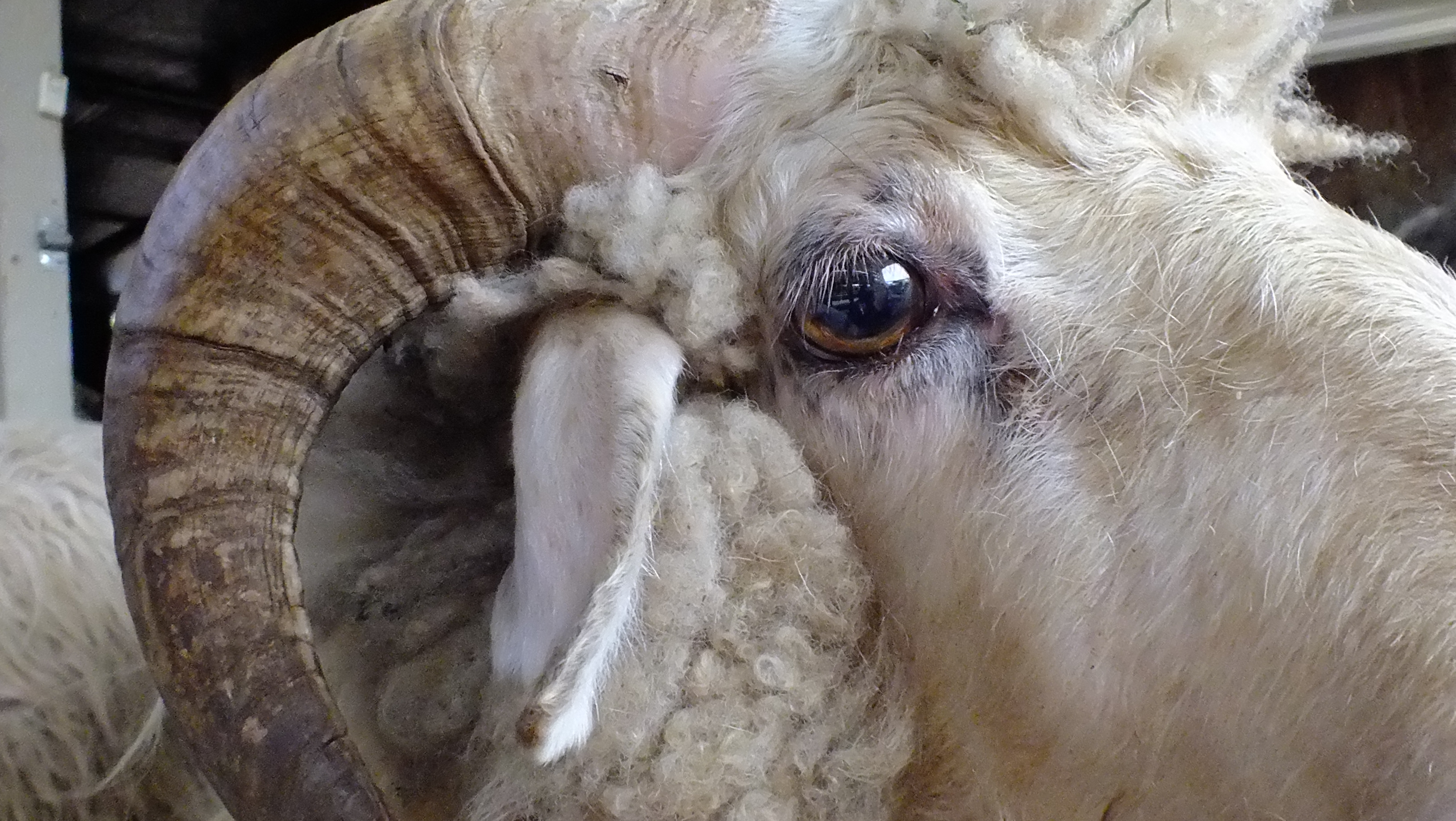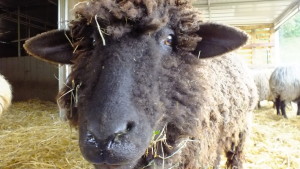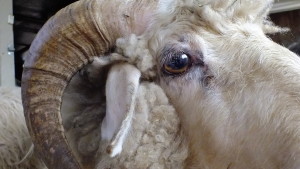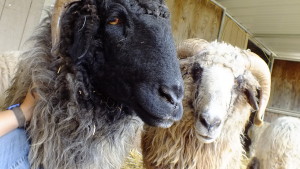
Sheep often get a bad wrap for being stupid. I think people forget that they don’t have a lot of defenses, unlike us. They have to be flighty or they could become someones dinner. This doesn’t make them dumb, it makes them smart.
And I don’t know about you but I don’t make my best decisions when I’m in a fearful, panicky place. When sheep are dealing with strangers or even people they know who are rough with them, they are being handled by predators. That would make anyone nervous and a bit jumpy!
When calm and feeling safe, sheep become friendly and can be quite clever. Here are a few examples of that:
Sheep foil cattle guard
Hungry sheep on the Yorkshire Moors (Great Britain) taught themselves to roll 8 feet (3 meters) across hoof-proof metal cattle grids to raid villagers’ valley gardens. According to a witness, “They lie down on their side or sometimes their back and just roll over and over the grids until they are clear. I’ve seen them doing it. It is quite clever, but they are a big nuisance to the villagers.” [Source: BBC News, July 2004]
Self-medicating sheep
New research is suggesting that sick sheep could actually be smart enough to cure themselves. Australian researchers believe that sick sheep may actually seek out plants that make them feel better. There has been previous evidence to suggest that animals can detect what nutrients they are deficient in and can develop knowledge about which foods are beneficial or toxic.
Facial Recognition
A study of sheep psychology has found man’s woolly friend can remember the faces of more than 50 sheep who they do not live with for up to two years. The hidden talents of sheep revealed by a study in the journal Nature suggest they may be nearly as good as people at distinguishing faces in a crowd.
Smarter than previously thought
Scientists at the University of Cambridge were studying neurodegeneration with a focus on Huntingdon’s disease, an inherited disorder that leads to nerve damage and dementia, when they stumbled on their findings quite by accident.
The scientists placed pairs of different colored buckets in front of sheep; with one containing food each time.
They them switched the food from bucket to bucket, while also alternating the colors and, eventually, changing the shapes of the buckets.
The sheep learned to recognize different patterns in colors and changed their behavior according to the pattern they were looking at. They also altered their behavior based on the various shapes placed in front of them.
Only humans and other primates find these kind of responses easy; most other large animals struggle with them, the scientists said.
Successfully completing the tasks relies on the pre-frontal cortex, a part of the brain larger in humans than other animals, New Scientist reported.
Animal behavioral specialists have for decades focused their attention on monkeys during testing.
Scientists believe this is because sheep, like many humans, behave differently when in a flock compared to when alone.
Dr Morton said: ‘Sheep live in a flock, and in a flock they’re rather silly. When you work with them as individuals, they behave very differently.’
I think this last statement just says it all. Do you think a crowd of panicked people makes the best decisions? No. We make calm, rational choices when we feel safe. So do sheep.
As for my own flock I have had several open up doors and gates that I never thought they could. Plus they excel at an aspect of intelligence that many people could stand to improve- emotional intelligence.



